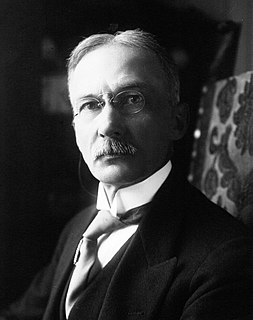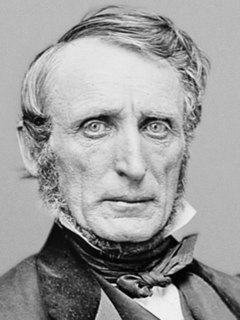A Quote by Noam Chomsky
It is quite possible--overwhelmingly probable, one might guess--that we will always learn more about human life and personality from novels than from scientific psychology
Quote Topics
Related Quotes
Plainly, such an approach does not exclude other ways of trying to comprehend the world. Someone committed to it (as I am) can consistently believe (as I do) that we learn much more of human interest about how people think and feel and act by reading novels or studying history than from all of naturalistic psychology, and perhaps always will; similarly, the arts may offer appreciation of the heavens to which astrophysics cannot aspire.
The paradox of the human condition is expressed more in education than elsewhere in human culture, because learning to learn has been and continues to be Homo Sapiens' most formidable evolutionary task... It must also be clear that we will never quite learn how to learn, for since Homo Sapiens is self-changing, and since the more culture changes the faster it changes, man's methods and rate of learning will never quite keep pace with his need to learn.
Scientific education for the masses will do little good, and probably a lot of harm, if it simply boils down to more physics, more chemistry, more biology, etc to the detriment of literature and history. Its probable effect on the average human being would be to narrow the range of his thoughts and make him more than ever contemptuous of such knowledge as he did not possess.
The science of psychology has been far more successful on the negative than on the positive side... It has revealed to us much about man's shortcomings, his illnesses, his sins, but little about his potentialities, his virtues, his achievable aspirations or his psychological health... We must find out what psychology might be if it could free itself from the stultifying effects of limited, pessimistic and stingy preoccupations with human nature.
[Attributing the origin of life to spontaneous generation.] However improbable we regard this event, it will almost certainly happen at least once.... The time... is of the order of two billion years.... Given so much time, the "impossible" becomes possible, the possible probable, and the probable virtually certain. One only has to wait: time itself performs the miracles.
I suspect the reason is that most people [...] have a residue of feeling that Darwinian evolution isn't quite big enough to explain everything about life. All I can say as a biologist is that the feeling disappears progressively the more you read about and study what is known about life and evolution. I want to add one thing more. The more you understand the significance of evolution, the more you are pushed away from the agnostic position and towards atheism. Complex, statistically improbable things are by their nature more difficult to explain than simple, statistically probable things.
What you learn is often determined by what you need to know. If you think you're weak, you will learn that you are strong. If you think you are indestructible, you will learn that you are fragile.
In the end though, you will learn that you are human. You are no more and no less than all those who are learning their lessons as you learn yours.
As the popular trust in science fades - and many sociologists say that's happening today - people will develop a distrust of purely "scientific" psychology. Researchers in the universities haven't picked up on this; they're more interested in genetics and computer models of thinking than ever. But, in general, there is a huge distrust of the scientific establishment now.
For example, there are numbers of chemists who occupy themselves exclusively with the study of dyestuffs. They discover facts that are useful to scientific chemistry; but they do not rank as genuine scientific men. The genuine scientific chemist cares just as much to learn about erbium-the extreme rarity of which renders it commercially unimportant-as he does about iron. He is more eager to learn about erbium if the knowledge of it would do more to complete his conception of the Periodic Law, which expresses the mutual relations of the elements.
When the masters of industry pay such sums for a newspaper, they buy not merely the building and the presses and the name; they buy what they call the "good-will"- that is, they buy you. And they proceed to change your whole psychology - everything that you believe about life. You might object to it, if you knew; but they do their work so subtly that you never guess what is happening to you!





































